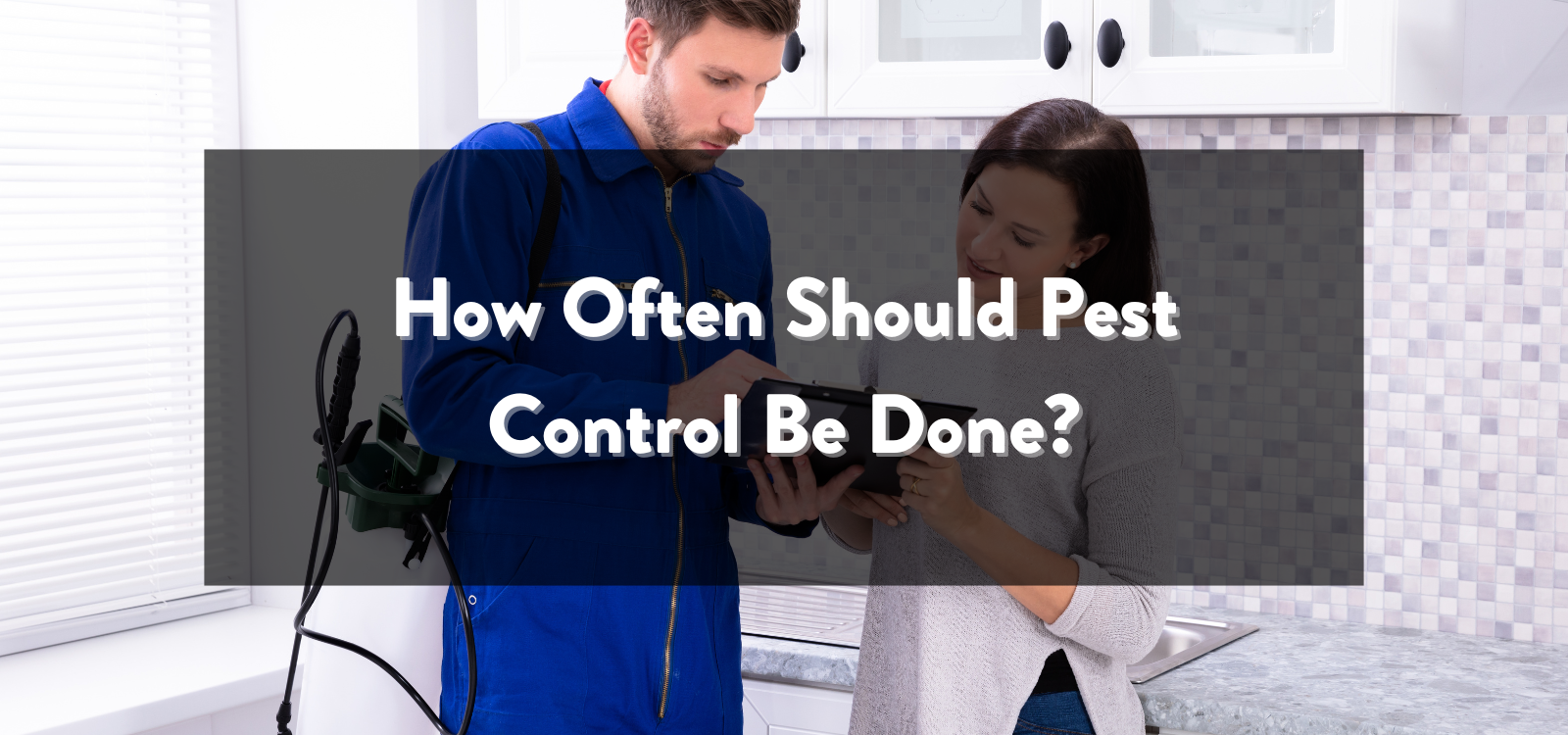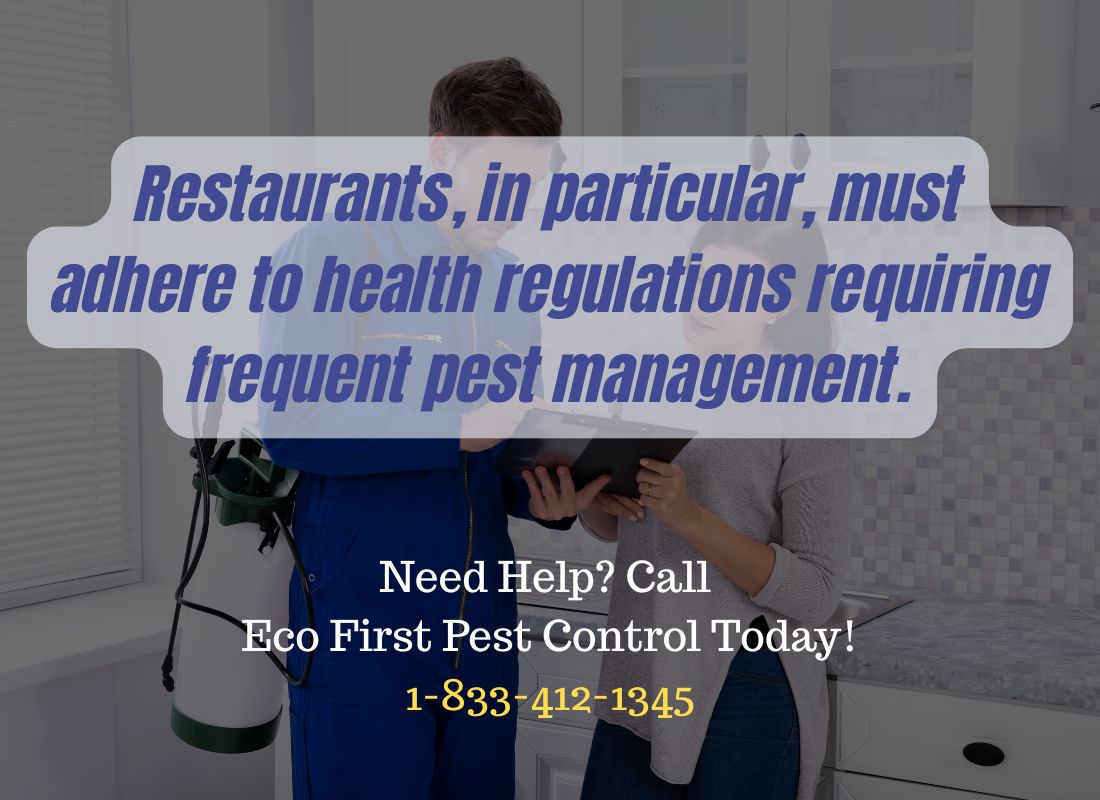
How Often Should Pest Control Be Done? A Comprehensive Guide
**How Often Should Pest Control Be Done?
When it comes to pest control, timing is everything. Knowing how often pest control should be done ensures that you’re not only keeping your space pest-free but also preventing potential infestations. The frequency can vary depending on the type of pests, the environment, and even the season.
2. Why Regular Pest Control Matters
Regular pest control helps protect your health, property, and peace of mind. Pests like cockroaches, ants, and rodents can carry diseases, contaminate food, and cause structural damage. Regular treatments can help prevent these issues before they escalate.
Health Risks of Pests
- Roaches: Spread bacteria, allergens, and asthma triggers.
- Rodents: Carry diseases like hantavirus and salmonella.
- Ants and Flies: Contaminate food with pathogens.
- Spiders: Some species can deliver painful, venomous bites.
Protecting Your Property
Termites and rodents can chew through wood and wiring, leading to costly repairs. Regular pest control helps safeguard your home from structural damage and financial loss.
3. General Guidelines for Pest Control Frequency
3.1 Frequency for Residential Properties
Most homeowners should schedule pest control quarterly. This helps tackle common pests like ants, spiders, and cockroaches. However, seasonal factors can influence the schedule:
- Spring and Summer: Increase frequency to every two months for ants and flies.
- Fall and Winter: Maintain quarterly visits, especially for rodents.
Additional Tips:
- Seal entry points before winter to keep rodents out.
- Schedule exterior treatments to form a protective barrier.
3.2 Frequency for Apartments
Pest control in apartments can be trickier due to shared walls and communal spaces. Ideally, pest control should be done every two to three months.
- Multi-Unit Buildings: Coordination with building management ensures comprehensive coverage.
- In-Unit Measures: Keep kitchens clean and store food properly.
3.3 Frequency for Commercial Spaces
Businesses should schedule pest control monthly. Restaurants, in particular, must adhere to health regulations requiring frequent pest management.

Why Monthly Checks Matter:
- High traffic and food handling increase pest risks.
- Regular inspections reduce liability and maintain a safe environment.
4. Pest-Specific Pest Control Frequency
4.1 Roaches
How often should pest control be done for roaches? Monthly treatments are ideal, especially in urban areas or food-related businesses. Roaches reproduce quickly, so consistent treatments are necessary.
Prevention Tips:
- Fix leaks and eliminate moisture.
- Store food in airtight containers.
- Regularly clean behind appliances.
4.2 Ants
Ant infestations require quarterly treatments, but if you spot a trail, increase the frequency. Ant colonies can reestablish themselves if even a few are left behind.
Prevention Tips:
- Maintain clean countertops.
- Seal cracks and crevices.
- Remove food debris promptly.
4.3 Flies
Flies can be persistent, especially in warm months. Bi-monthly treatments are recommended when fly activity is high.
- Kitchen Areas: Ensure trash is covered.
- Outdoor Spaces: Remove decaying organic matter.
4.4 Rodents
Rodents are a year-round threat but become more problematic in winter. Schedule pest control every three months or increase frequency if droppings or gnaw marks appear.
- Prevention: Close off entry points and reduce outdoor food sources.
4.5 Spiders
How often should pest control be done for spiders? Typically, quarterly treatments are sufficient, but some areas may need monthly visits, especially if prone to venomous spiders.
5. Seasonal Pest Control: Adapting to Changes
Pest activity varies by season, so it’s essential to adjust your pest control strategy accordingly.
- Spring: Increase frequency to control ants and flies.
- Summer: Focus on roaches and flies with bi-monthly treatments.
- Fall: Prepare for rodent intrusion with preventive measures.
- Winter: Maintain quarterly checks to prevent indoor infestations.
6. Factors That Influence Pest Control Frequency
Several factors can affect how often you need pest control:
- Location: Urban areas may require more frequent visits.
- Environment: Humid climates attract more pests.
- Usage: Restaurants need more frequent treatments than offices.
- History of Infestation: If pests have been a problem before, increase the frequency.
7. Signs You Need Pest Control Immediately
- Visible Pests: Spotting even one roach can indicate a larger issue.
- Droppings: Evidence of rodents or insects.
- Damage: Chewed wires, wood shavings, or gnawed items.
- Unusual Smells: Musty or sour odors often indicate infestations.
8. DIY vs. Professional Pest Control: Frequency Differences
While DIY methods can address minor issues, they are often less effective for long-term prevention. Professionals like Eco First Pest Control use targeted treatments that last longer, reducing the need for frequent applications.
9. How Often Should Pest Control Be Done in a Restaurant?
Restaurants should have pest control done monthly to comply with health codes and ensure customer safety. High food traffic increases the risk of infestation.
- Rodents: Weekly checks during colder months.
- Flies and Roaches: Monthly treatments and thorough sanitation.
10. Best Practices for Maintaining a Pest-Free Environment
- Regular Cleaning: Prevents pests from finding food.
- Sealing Entry Points: Reduces access.
- Monitoring: Keep an eye on hotspots like kitchens and basements.
11. Benefits of Regular Pest Control
Routine pest control isn't just about keeping creepy crawlies at bay. It offers a wide range of benefits that extend beyond mere convenience. Here’s why regular pest management should be a priority:
Protects Health and Safety
Pests like roaches, rodents, and flies carry harmful bacteria and diseases. Regular treatments help prevent the spread of illnesses like salmonella, hantavirus, and Lyme disease. For businesses, this means fewer health code violations and a safer environment for employees and customers.
Prevents Costly Damage
Termites and rodents are notorious for their destructive habits. Mice can chew through wires, increasing fire risks, while termites can silently eat through your home’s foundation. Regular pest control can catch these issues early, preventing thousands of dollars in repair costs.
Reduces Allergies and Respiratory Problems
Pest droppings, shed skin, and body parts can become airborne, aggravating allergies and asthma. This is particularly true for cockroach allergens, which are a common trigger for asthma attacks.
12. Choosing the Right Pest Control Service
Selecting the right pest control provider is crucial for effective and lasting results. Here are some tips for choosing a reliable service:
Look for Experience and Certifications
A good pest control company should be licensed, insured, and have certified technicians. Companies like Eco First Pest Control are known for their expertise and eco-friendly approach.
Consider Eco-Friendly Options
Environmentally conscious companies use non-toxic, sustainable methods that are safer for families, pets, and the planet.
Check Reviews and Testimonials
Customer reviews can provide insight into the effectiveness and reliability of a service. Look for companies with a solid track record.
Customized Treatment Plans
Pest control isn’t one-size-fits-all. Choose a provider that tailors their approach based on the pests, property size, and infestation severity.
13. Common Myths About Pest Control Frequency
There are several misconceptions about pest control that can lead to ineffective pest management. Here’s the truth behind some common myths:
Myth 1: You Only Need Pest Control When You See Pests
Fact: By the time you spot a pest, there’s often a much larger, hidden infestation. Regular treatments prevent this.
Myth 2: DIY Methods Are Just as Effective
Fact: While DIY methods can help with minor issues, they rarely address the root cause of infestations. Professional treatments offer long-term solutions.
Myth 3: Pests Die Off in Winter, So You Can Skip Treatment
Fact: Many pests simply move indoors to escape the cold, making winter treatments essential for year-round protection.
Myth 4: All Pest Control Chemicals Are Harmful
Fact: Modern pest control methods, like those used by Eco First Pest Control, often use safer, low-toxicity chemicals.
14. Eco-Friendly Pest Control Solutions
If you’re concerned about the impact of traditional pesticides, consider eco-friendly options. These methods prioritize safety and sustainability without sacrificing effectiveness.
Natural Pest Repellents
- Essential Oils: Peppermint, eucalyptus, and tea tree oils repel many insects.
- Diatomaceous Earth: A natural powder that dehydrates and kills crawling insects.
- Vinegar and Citrus: Effective against ants and flies.
Integrated Pest Management (IPM)
IPM is a comprehensive approach that combines preventive measures, habitat modification, and minimal chemical use to effectively manage pests. It’s a holistic approach that reduces the need for frequent treatments.
Benefits of Eco-Friendly Pest Control
- Reduced chemical exposure for humans and pets.
- Lower environmental impact.
- Often less expensive in the long run.
15. Conclusion and FAQs
Regular pest control is essential for maintaining a healthy, safe, and comfortable living or working environment. Whether you’re a homeowner, tenant, or business owner, understanding how often pest control should be done is the first step in effective pest management. For the best results, choose a professional, like Eco First Pest Control, that can provide personalized, eco-friendly solutions.
Frequently Asked Questions (FAQs)
Q1: How often should pest control be done in an apartment?
A: Ideally, every two to three months to prevent infestations from spreading between units.
Q2: How often should pest control be done for roaches?
A: Monthly, especially in high-risk areas like kitchens and bathrooms.
Q3: Can I do pest control myself?
A: DIY methods can help with minor problems, but professional treatments are more effective for long-term control.
Q4: Is pest control safe for pets and children?
A: Yes, when done by professionals using eco-friendly, low-toxicity treatments.
Q5: How long should I stay out of my home after pest control?
A: Typically, 2-4 hours, but this depends on the chemicals used. Always follow your pest control provider’s guidelines.